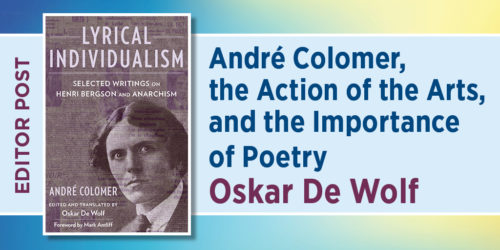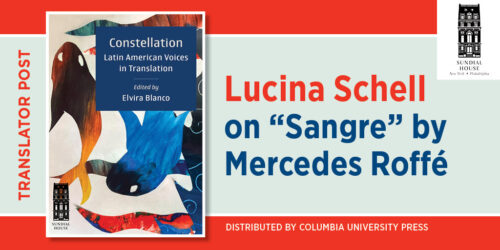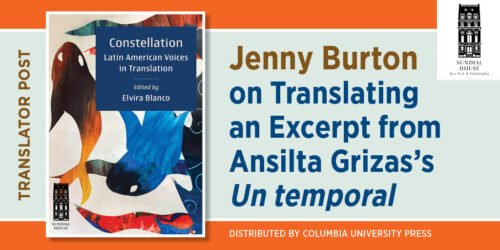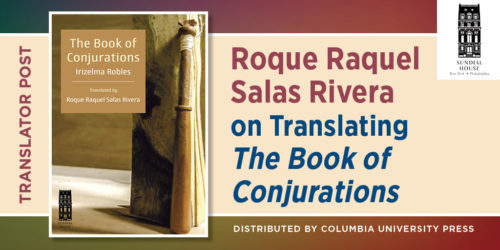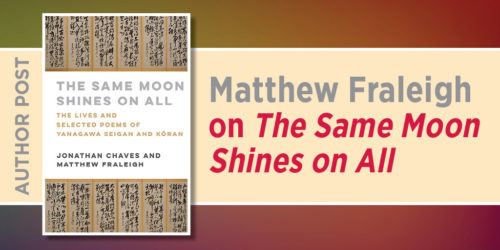Jonathan Chaves on Yanagawa Seigan
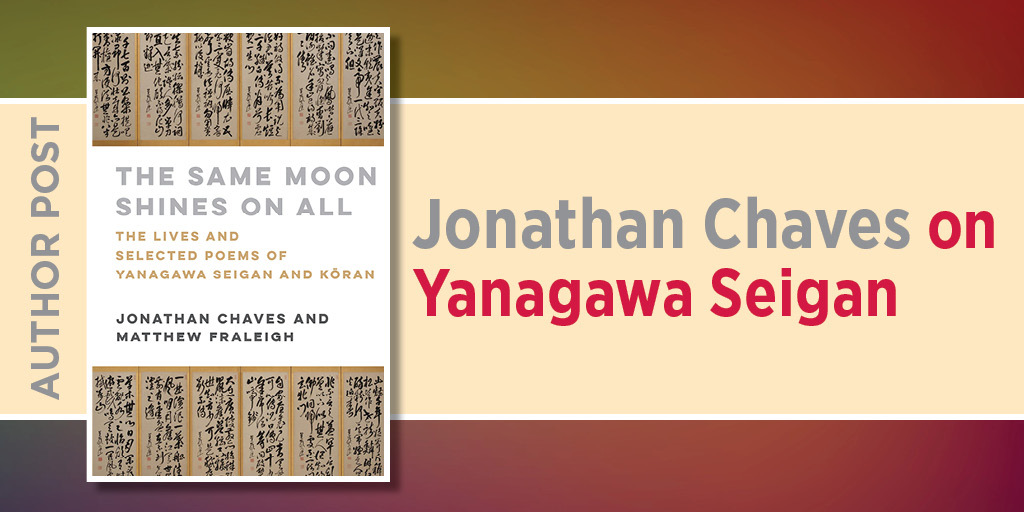
Perhaps the largest body of great poetry in the world as yet undiscovered is the verse composed by Japanese authors not in Japanese, but in literary Chinese (C., wenyan; J., bungen).
The phenomenon of great literature written in a language not the author’s own is understandably rare in the world. When medieval and later European writers composed in Latin, the results were often commendable but rarely achieved real greatness. Only in the English fiction of the Polish author Joseph Conrad (1857–1924), masterpieces such as “Heart of Darkness” or Lord Jim, do we recognize work that has achieved the highest level. There is also the linguistic virtuoso Fernando Pessoa (1888–1935), Portugal’s leading modern poet, who wrote superb neo-metaphysical sonnets in English as well as French poems sometimes set to fado music.
But in Japan, since at least the eighth century, courtiers mastered literary Chinese and held poetry contests in this language at court. This is despite the fact that Chinese and Japanese are not linguistically related languages, and their poetics therefore differ to a radical extent. Chinese poetry rhymes, always; Japanese poetry in the earlier tanka or waka forms and the later haiku forms never rhymes. In addition, Chinese being a tonal language—as Japanese is not—demands tonal euphony in the lines and couplets of its poetry. To master these aspects of Chinese poetics was a most daunting challenge, and one would hardly expect the result to rise above that of so much Latin poetry in the West. And yet it does, counter-intuitively reaching levels of deeply moving expression that speaks to us from the poets’ hearts in the works of the most accomplished masters.
Amongst these masters must be counted Yanagawa Seigan (1789–1858). A Chinese merchant-scholar friend of Seigan’s, Jiang Yunge/Damei, in a colophon to a volume of Seigan’s verse dated 1824, writes,
I, Damei, have read a great many of your honored land’s [Chinese] poems. When it comes to excellence of talent and of feeling, no one surpasses [Yanagawa] Seigan. His Poems Written on a Journey West, consisting of over 130 poems, is powerfully free and richly beautiful, like a hawk soaring through the clear sky, breasting the flowing wind and circling about, or it is like lotus bloom in azure waters, with not the slightest artificiality of ornament upon them—on the contrary, these poems are freshly lovely and worthy of the reader’s love. He has profoundly mastered the tone of a true poet, and should be considered as the poetic master of his generation. Were he writing in our land [China], people there would certainly be praising him as well without the least bit of dissatisfaction. How could his work merit recognition only in his Honored Land?
As a matter of fact, Chinese readers would learn of the work of Seigan and others writing in literary Chinese only with the 1883 publication of Dongying shixuan (An Anthology of Poems from the Eastern-Isles-of-Paradise) by the scholar Yu Yue (1821–1907).
Jiang Yunge grasps something that remains little recognized outside of Japan, where there has been a considerable body of excellent modern scholarship on such authors as Seigan. Let us read one example of Seigan’s work, hopefully to realize that for us as well here lies a body of buried treasure well worth digging out and given new life, as this book hopes to do. The poem contains the words used as the title of our book:
Gazing at the Moon on the Night of the Midautumn Festival
Wild-goose wind, rain of swallows,
clearing as I sit here:
Gazing up, I see the golden waves
gloriously flowing.
Throughout the world—four seas, eight wilds—
the same moon shines on all;
In ten years never has Midautumn
been so beautiful!
Fish and dragons now are dancing
in countless tarns and rivers;
At someone’s home, deep in sparse woods,
ghosts and demons grieve.
So long I’ve suffered, tainted with dust,
out in the world of men:
This night in joy I feel my eyes
finally washed clean.
This is thoroughly persuasive as an authentic expression. The imagery is fresh and appropriately atmospheric, and the direct statement of emotion in the final couplet rings completely true. Seigan has transcended the formidable linguistic challenges of classical Chinese poetry and made it his own. The touch of the supernatural is characteristic as well of Seigan’s sometimes dark view of the world around us.
Yanagawa Seigan included in his collected works a small anthology of his wife Kōran’s (1804–79) Chinese-language poetry, which was greatly expanded by modern scholarship. She too proves a master-hand at this difficult literary art. Let us end with one of her poems:
Spring Clearing at a Lakeside Village
Noontime scene still holds on to morning scene;
Mountain mist is mixed with lake-water mist.
In windy, clear weather, cranes are crying;
On warm, inviting grass, a single ox lies.
We just can’t settle on a mere three acres;
Half our life we’ve spent floating around.
Where can one find the lucky husband and wife
Cultivating lakeside fields into old age?
Jonathan Chaves is professor of Chinese at George Washington University and coauthor of The Same Moon Shines on All: The Lives and Selected Poems of Yanagawa Seigan and Kōran.

